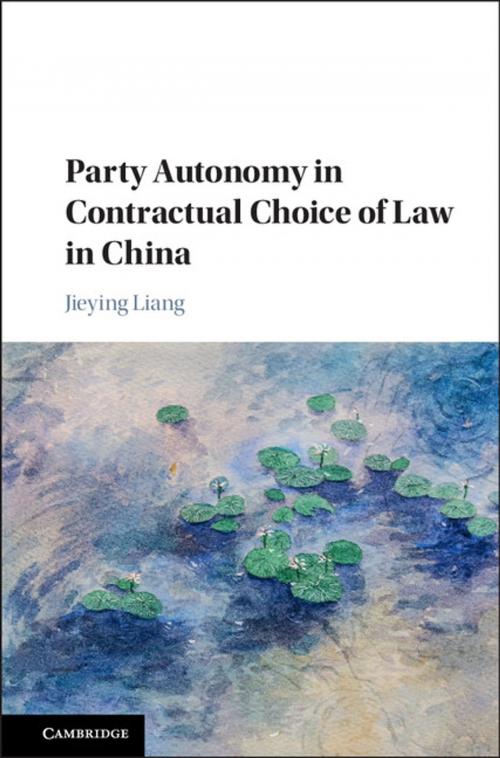Party Autonomy in Contractual Choice of Law in China
Nonfiction, Reference & Language, Law, Commercial, International| Author: | Jieying Liang | ISBN: | 9781316761717 |
| Publisher: | Cambridge University Press | Publication: | March 31, 2018 |
| Imprint: | Cambridge University Press | Language: | English |
| Author: | Jieying Liang |
| ISBN: | 9781316761717 |
| Publisher: | Cambridge University Press |
| Publication: | March 31, 2018 |
| Imprint: | Cambridge University Press |
| Language: | English |
The principle of party autonomy in contractual choice of law is widely recognised in the law of most jurisdictions. It has been more than 30 years since party autonomy was first accepted in Chinese private international law. However, the legal rules provided in legislation and judicial interpretations concerning the application of the party autonomy principle are abstract and open-ended. Without a critical understanding of the party autonomy principle and appropriate interpretations of the relevant legal rules, judges have not exercised their discretionary power appropriately. The party autonomy principle has been applied in a way that undermines its very purpose, that is, to protect the legitimate expectations of the parties and promote the predictability of outcomes in transnational commercial litigation. Jieying Liang addresses the question of how, when, and with what limitations, parties' choice of law clauses in an international commercial contract should be enforced by Chinese courts.
The principle of party autonomy in contractual choice of law is widely recognised in the law of most jurisdictions. It has been more than 30 years since party autonomy was first accepted in Chinese private international law. However, the legal rules provided in legislation and judicial interpretations concerning the application of the party autonomy principle are abstract and open-ended. Without a critical understanding of the party autonomy principle and appropriate interpretations of the relevant legal rules, judges have not exercised their discretionary power appropriately. The party autonomy principle has been applied in a way that undermines its very purpose, that is, to protect the legitimate expectations of the parties and promote the predictability of outcomes in transnational commercial litigation. Jieying Liang addresses the question of how, when, and with what limitations, parties' choice of law clauses in an international commercial contract should be enforced by Chinese courts.















